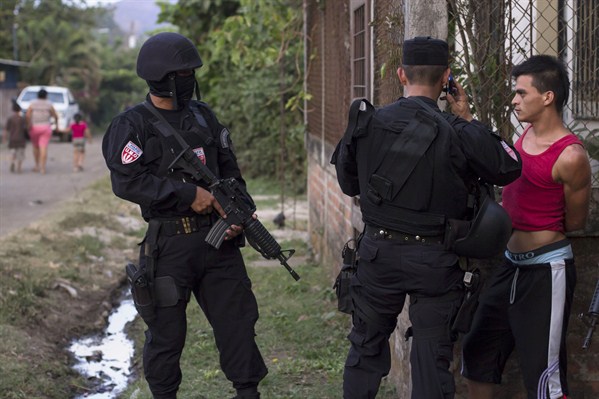Editor’s Note: In July 2019, this story received an Honorable Mention by the National Press Club for the Edwin M. Hood Award for Diplomatic Correspondence, which recognizes excellence in reporting on diplomatic and foreign policy issues. It is also one of 30 that we’ve selected from our archives to celebrate World Politics Review’s 15th anniversary. You can find the full collection here.
For 15 years, El Salvador’s zero-tolerance approach to gangs—known as mano dura, or iron fist—has resulted in devastating violence while failing to address the root causes of the crimes it’s supposed to eliminate. Yet this approach to dealing with gangs in El Salvador remains a favorite of politicians, and it has a new backer in the Trump administration.
SAN SALVADOR—Late one morning in the fall of 2016, police officers handcuffed a group of middle school-aged boys on a street in a neighborhood on the outskirts of El Salvador’s capital. The boys were serving as lookouts for members of MS-13, or Mara Salvatrucha, the violent street gang that originated in Los Angeles and expanded over two decades ago to this small Central American country, which had just ended a brutal civil war. MS-13 and other gangs have since multiplied across El Salvador, becoming a main source of violence in the postwar era. There are now an estimated 60,000 gang members in a country of 6.5 million people. Serving as lookouts, as the boys were doing, is an early step toward full gang membership.

